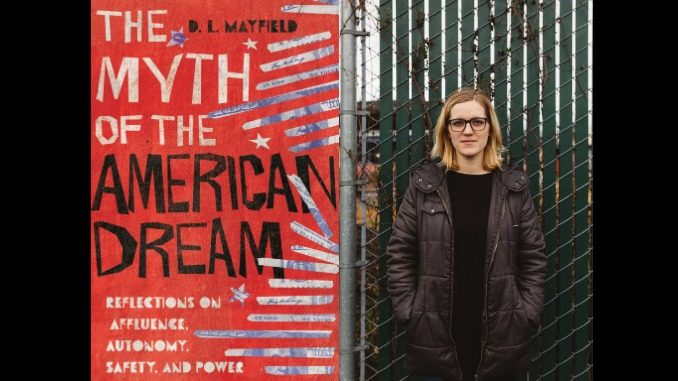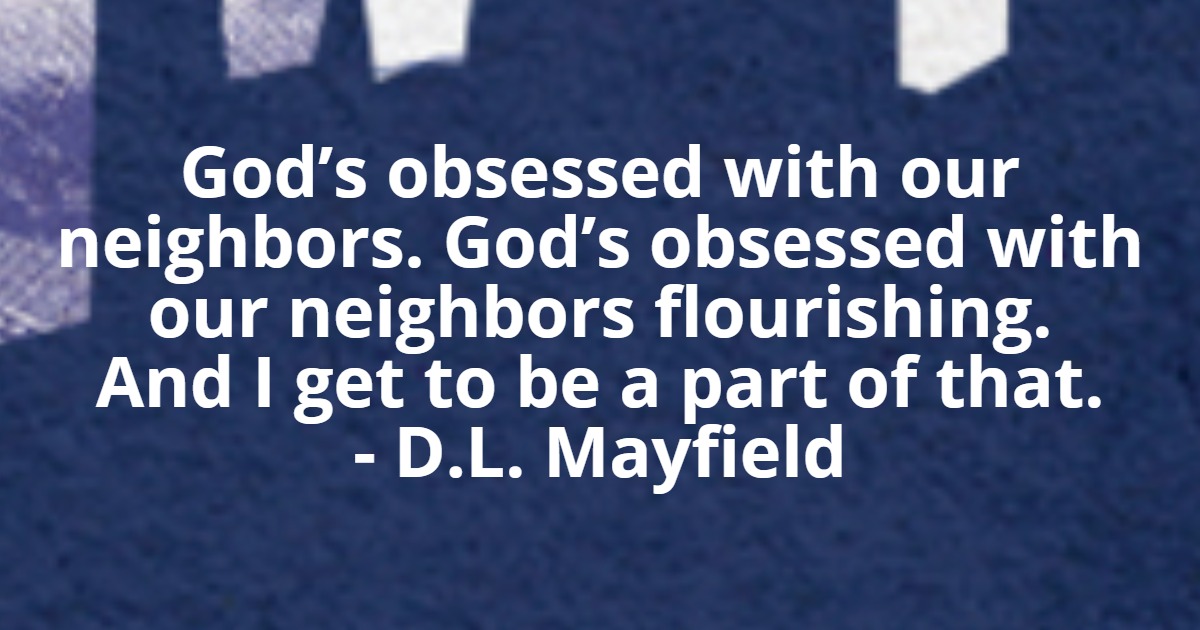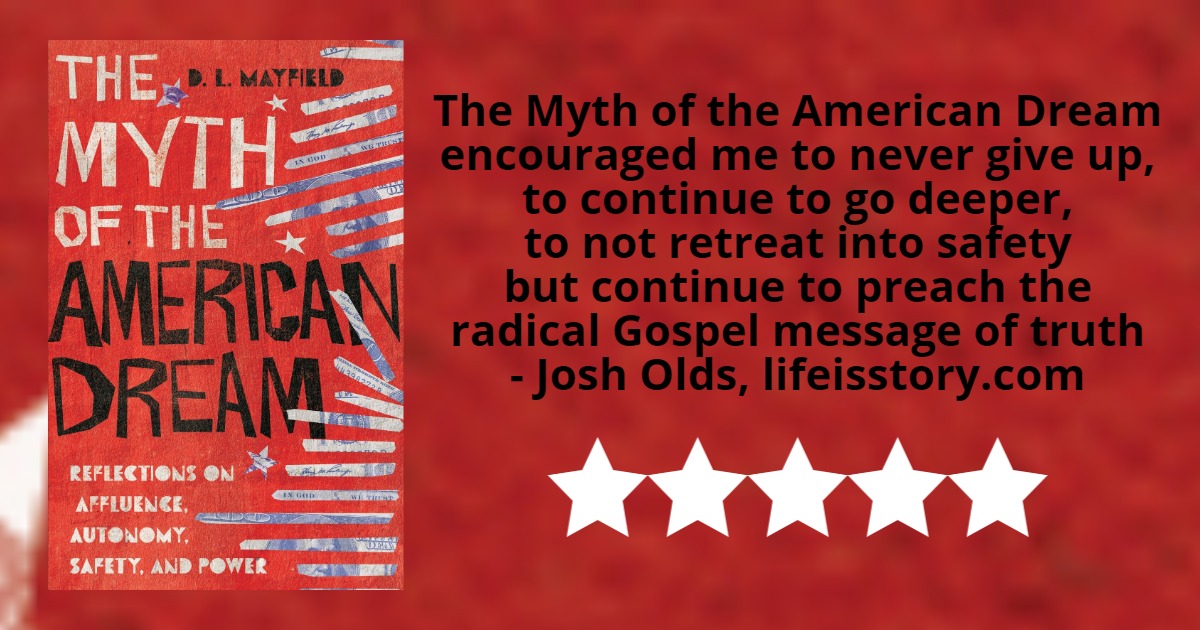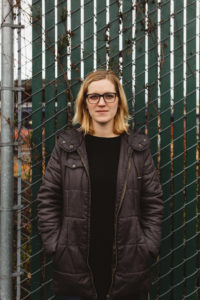
Podcast: Play in new window | Download
Subscribe: Apple Podcasts | RSS
I picked this book up based on the title and nothing else. I had long been disillusioned with the American Dream, even as I still harbored a secret desire for it. My social and political sensibilities had been turned upside down in the past decade, coming into sharp focus after the 2016 elections. A year-long study of the book of Amos taught me how God demands the nations behave—and how he brings judgment on those who do not. The end result of that left me feeling very alone. Politically homeless. Socially tolerated, but considered a radical. Applauded for idealism, but very few willing to follow in practicalities.
D.L. Mayfield helped me remember that I’m not alone. The Myth of the American Dream didn’t change my mind on anything, but if you’re the typical American Christian, you’re going to find this to be quite the challenging read. And it’s more than just theory. Mayfield has lived it out, purposely and purposefully countering the culture to bring joy, peace, and Jesus to those surrounding her. This book came at a great time in my life, right when I needed direction for the future.
The Interview | D.L. Mayfield
This excerpt has been lightly edited for brevity and clarity. You can listen to the full interview by clicking the play button above or subscribing at Apple Podcasts, Stitcher, Spotify, or wherever you listen to podcasts.
Josh Olds: I think we have to start with this from the outset. Who is D.L. Mayfield and what is The Myth of the American Dream?
D.L. Mayfield: I write as D.L. Mayfield, but my name is Danielle and I am someone who lives on the outskirts of Portland, Oregon, and I teach English to speakers of other languages. I’ve lived in refugee and immigrant communities in the US for about 14 years now. And it’s totally rocked my world. And yeah, I’ve written two books now—the second of which is The Myth of the American Dream: Reflections on Aflluence, Autonomy, Safety and Power. And it’s really just a collection of essays, where I am trying to understand how strong the values of the American Dream have shaped my life and how powerful they are, and how contradictory they seem to the values of Jesus in the Gospels. And so, really, it’s a book of wrestling and questions and trying to pay attention to inequality in my own neighborhood, and then sort of, you know, broaden it out from there.

Josh Olds: I think this book came out at a providential time. Because the things that you talk about in this book, they’ve always been under the surface of the American life. And when I say under the surface, I mean for white evangelicals. They are fully on-the-surface evident to any minority community in the United States. We’ve been faced with reality these past couple of months that, up until now, people like you and me could easily overlook. But you didn’t. What led you down this path?
D.L. Mayfield: I grew up wanting to be a missionary. So I wanted to help people. The framework I’ve been given within evangelicalism was one of charity and so we help the poor because we have more than we need. But we never asked the question, “Why are people poor?” You know, why are people poor in my city? Why are people poor globally? And we really didn’t engage in a systemic framework.
And so the first part of my book is looking at this value of affluence. I thought it was a really important value to start off with, because it’s a great way to invite people like myself, who did not grow up with an ability to engage in systems to instead shift the conversation from “somebody is poor because they made a bad choice,” which is how I was raised to think of it. There’s this entire system at play that actually hoards wealth for some, and then keeps other people from wealth. And it’s very systematic. And in the United States, it’s all based upon race and gender and class.
And so I think we have to really dig into the history, dig into these systems, and then start to say like, “I don’t think God wants anybody to be poor.” So how do we engage in that? What’s cool is going back and especially looking at the Hebrew Scriptures—they tell you so much about why people are poor and how we can create more just societies where we actually prioritize the most marginalized. The Hebrew Scriptures always talk about the orphan, the widow and the foreigner and why we have to always keep them in our minds when we’re making these decisions. It’s like, “Oh my gosh, this is a part of our Christian heritage.” Why can’t we as Christians be claiming this?
The Book | The Myth of the American Dream
Read Josh Olds’ full review HERE.
Affluence, autonomy, safety, and power. These are the central values of the American dream. But are they compatible with Jesus’ command to love our neighbor as ourselves? In essays grouped around these four values, D. L. Mayfield asks us to pay attention to the ways they shape our own choices, and the ways those choices affect our neighbors. Where did these values come from? How have they failed those on the edges of our society? And how can we disentangle ourselves from our culture’s headlong pursuit of these values and live faithful lives of service to God and our neighbors?

The Author | D.L. Mayfield
 D. L. Mayfield is a writer and activist who has spent over a decade working with refugee communities in the United States. Her work has been published in McSweeney’s, The Washington Post, Christianity Today, Christian Century, Sojourners, Vox, and the Englewood Review of Books. She is also the author of Assimilate or Go Home: Notes from a Failed Missionary on Rediscovering Faith. She lives in Portland, Oregon, with her husband and two children.
D. L. Mayfield is a writer and activist who has spent over a decade working with refugee communities in the United States. Her work has been published in McSweeney’s, The Washington Post, Christianity Today, Christian Century, Sojourners, Vox, and the Englewood Review of Books. She is also the author of Assimilate or Go Home: Notes from a Failed Missionary on Rediscovering Faith. She lives in Portland, Oregon, with her husband and two children.
